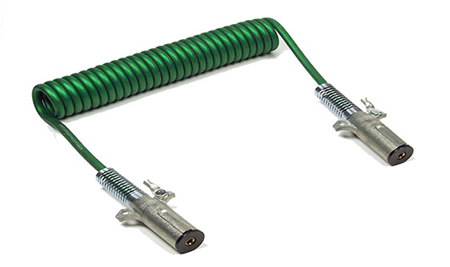Throughout my career as a driver I have pulled many types of trailers including reefers, dry vans, custom double-deck flatbeds, pneumatic bulk tanks and even intermodal containers. One thing that has come with all of them is the need to know how to pull and operate each new type of equipment in the safe and proper manner. Although it is not necessary to undergo extensive multi-day training when going from trailer type to trailer type, but knowing each subtle difference can often be the advantage to save headaches in the long run!

I recently looked into renting a lift-gate trailer for a job that required one and luckily thought twice long before it was time to pick it up for use. Some would assume that a lift-gate van trailer would not be all too different from a regular dry van, except of course for the additional weight of the apparatus on the rear and the batteries. When I got to thinking about it in a logical sense though, I began to realize that the batteries would need to be kept charged somehow.

This led me to give a call into the shop manager at the rental company I was renting it from, who then gave me a crash course in the lift gate differences. Aside from the fact that the fully charged system would be limited without a proper power connection, he also informed me that the power receptacle needed to connect the lift-gate power supply to the truck was not standard equipment on trucks and had to either be ordered that way or added after initial delivery. We discussed alternative power options based on the facilities I would be utilizing the lifting and lowering mechanisms at and came to a successful alternative means of keeping the power system charged while in use.
Thanks to not relying on the assumption that all trailers are created equal, I was able to avoid the possibility of being “caught with my gate down” so-to-speak! One thing that switching between different types of equipment has taught me is to ask questions and make sure what I am pulling is right for the job and to make sure I understand its operation. Nothing is more embarrassing than showing up to a job and not knowing how to operate the equipment you are supposed to using as a skilled professional!